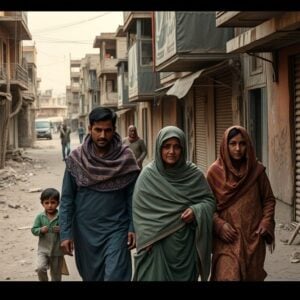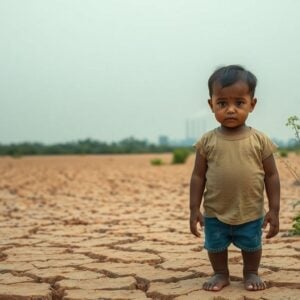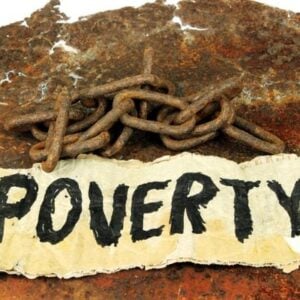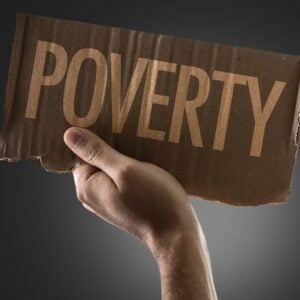The Nigerian presidency has strongly contested a recent World Bank report estimating that 139 million Nigerians live in poverty. Presidential spokesperson Sunday Dare argued that the World Bank’s figures, based on a global poverty line of $2.15 per day, do not accurately reflect Nigeria’s local economic realities and overlook the informal economy. The government insists that while challenges remain, the country is on a trajectory of recovery and reform.
Key Takeaways
- The Nigerian presidency disputes the World Bank’s estimate of 139 million Nigerians living in poverty.
- The government argues the World Bank’s methodology, using a $2.15 per day global poverty line, is outdated and doesn’t capture Nigeria’s economic nuances.
- The presidency highlights ongoing government initiatives aimed at poverty reduction and economic improvement.
- The World Bank acknowledges Nigeria’s reforms but stresses the need for continued efforts to improve living standards.
Disputing the Numbers
President Bola Tinubu’s administration has publicly rejected the World Bank’s assessment, labeling the 139 million poverty figure as "unrealistic" and detached from local conditions. Sunday Dare, Special Adviser to the President on Media and Publicity, explained that the World Bank’s benchmark of $2.15 per person per day, set in 2017 Purchasing Power Parity (PPP) terms, translates to approximately N100,000 per month at current exchange rates. This, he argued, is significantly higher than Nigeria’s new minimum wage of N70,000, indicating the global measure is an analytical construct rather than a direct reflection of income realities.
Furthermore, the presidency pointed out that poverty assessments using PPP methodology often rely on historical consumption data (Nigeria’s last major survey was in 2018/19) and tend to overlook the substantial informal and subsistence economies that support millions of households. Therefore, the government views the World Bank’s figure as a "modelled global estimate, not an empirical representation of conditions in 2025."
Government’s Poverty Alleviation Efforts
Despite the disagreement on the poverty figures, the presidency emphasized that the government remains focused on improving household welfare and building a resilient economy. Several initiatives were highlighted, including:
- Conditional Cash Transfers (CCT): Expanded to reach up to 15 million households, with over N297 billion disbursed since 2023.
- Renewed Hope Ward Development Programme: A new initiative targeting all electoral wards to deliver micro-infrastructure and social services.
- National Social Investment Programmes (NSIPs): Strengthening programs like N-Power, GEEP micro-loans, and the Home-Grown School Feeding program.
- Food Security Initiatives: Distribution of subsidized grains and fertilizers, and revival of strategic food reserves.
- Renewed Hope Infrastructure Fund: Financing critical projects in energy, road, and housing.
- National Credit Guarantee Company: Expanding affordable credit to small businesses, women, and youth.
The government also cited structural reforms such as fuel subsidy removal and exchange rate unification as necessary steps to address the root causes of poverty, noting that even the World Bank has acknowledged these reforms are restoring macroeconomic stability.
World Bank’s Perspective
The World Bank, through its Country Director for Nigeria, Mathew Verghis, acknowledged the government’s reform efforts but stressed that more needs to be done to translate economic gains into better living standards for all Nigerians. The bank highlighted that food inflation remains a significant concern, with poor households spending a large portion of their income on food, the cost of which has risen substantially.
The World Bank also recently revised its global poverty line upwards from $2.15 to $3.00 per person per day, a move that could potentially reclassify more Nigerians as living in poverty, as it better reflects the rising cost of basic needs. Data from 2018 suggested that around 71 million Nigerians already lived below this new $3 benchmark.
Sources
- World Bank saying 139 million Nigerians in poverty doesn’t bother Tinubu: Presidency, Peoples Gazette Nigeria.
- ICYMI: Why Nigeria’s Poverty Reality Still Defies the $3 Global Benchmark, Dataphyte.
- FG disputes World Bank report on poverty in Nigeria, 21st CENTURY CHRONICLE.
- Presidency rejects World Bank poverty claims, Businessday NG.
- Presidency Rejects World Bank’s Poverty Report, Says It Does Not Reflect Reality • Channels Television, Channels Television.







